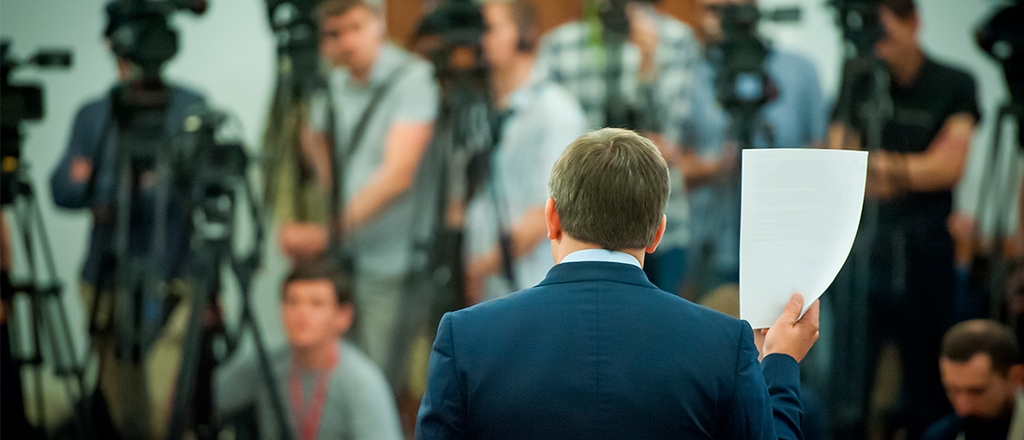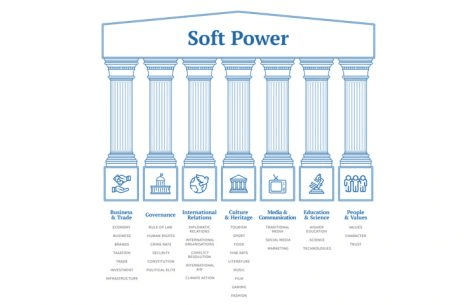- Home
- Our Purpose At Ie University
- Knowledge At Ie University
- How Nations Can Build Influence And Power Amid The Pandemic
How nations can build influence and power amid the pandemic

By Gabriela Salinas, IE Business School Professor
Since the onset of what the UN has coined the “defining global health crisis of our time and the greatest challenge we have faced since World War Two” caused by the coronavirus pandemic, we have found ourselves in an uncertain and complex situation as citizens. This has been exacerbated by the diverse reactions from our governments and corporations. Many of these actions and initiatives, which have generated criticism in some cases and praise in others, will contribute to, once the crisis is over, the reputation – brand, if you will – of those nations and companies.
Entities that have acted in a quick, honest, and compelling fashion, whose decisions have not only contributed to protecting their citizens and employees, but also their larger ecosystem, will see their influence increase in their community and in the world. In the case of nations, this goes far beyond military or economic power. It is “soft power,” and this is what we consider, at Brand Finance, where I am Global Managing Director of the education division, Brand Finance Institute, to be the key in the positive construction of the nation brand. This concept has acquired particular relevancy in the 21st century. By understanding what drives soft power and a nation’s prosperity in general, it is possible to effectively allocate resources that can slowly yet productively change perceptions. To do this, countries (and corporations alike) must identify the levers of influence to delineate long-term strategies consistent with national goals of public and economic diplomacy. These include:
- Awareness and Familiarity: nation brands which people know, and have mental availability of, have greater soft power
- Overall Influence: the degree to which a nation is seen to have influence in the respondent’s country as well as on the world’s stage
- Overall Reputation: is this nation deemed to have a strong and positive reputation globally?
- Performance on the 7 Soft Power Pillars (Business & Trade, Governance, International Relations, Culture & Heritage, Media & Communication, Education & Science, People & Values)
Brand Finance released the Global Soft Power Index in February 2020 in an effort to measure a nation’s ability to influence the preferences and behaviors of various actors through soft power rather than coercion. The study included 55,000 respondents, including specialists and the general public in 100 countries, and incorporates a broad range of measures, which in combination provide a balanced and holistic assessment of nations’ presence, reputation, and impact on the world stage. The survey measured the soft power of nations by their performance of the seven pillars. The following graph details each pillar and the variables measured in each one of them.

Among the public diplomacy tools and techniques that positively impact soft power and strengthen the country's brand, “gastrodiplomacy” and “sports diplomacy” play a fundamental role within one of the fundamental pillars: "Culture & Heritage." But now at this moment in which we find ourselves grappling with a global pandemic, health diplomacy has acquired renewed relevance.
For example, with the United States hit hard by the pandemic, China leveraged its experience and production capacity of medical equipment as a “soft power” tool: in mid-March, it announced that it would help 82 countries, and since then, it has sent medical staff and equipment to Italy, and donated equipment to Pakistan, Japan, Argentina and other Latin American countries. India, which has been coined as “the pharmacy of the world” for its production of generic drugs, has demonstrated its leadership fulfilling the increasing global demand for drugs used to treat COVID-19. The Indian government, recognizing the importance of this activity in terms of building soft power, launched a health diplomacy program, sending medical aid to more than 154 countries. Lastly, and more recently, the race to develop an effective vaccine has been coined by some political analysts a “geopolitical battle.” Witnessing how the different public health agencies are funding private initiatives to develop a COVID-19 vaccines, it has become apparent that “vaccine diplomacy,” which falls under the pillar of International Relations, will play a key role in foreign policy furthering diplomatic national interests.
Pandemic, Leadership, and Soft Power
The United States, Germany, the United Kingdom, Japan, and China are the top five countries, respectively, in terms of soft power, according to the Global Soft Power Index 2020, and their examples help us understand that soft power goes far beyond public policy. For example, the United States, which led overall in the survey, scored first in culture and entertainment, sports, and brands and products. Thus we see the symbiotic relationship between the strength of a country’s commercial brands, which act as ambassadors for the business ecosystem from which they originate, and a country’s global influence.
Yet, what happens in a crisis of the magnitude that we are currently experiencing?
We have recently witnessed how public-private collaboration is key to mitigate the effects of the health, social, and economic crisis in which we are living. The French luxury group, LVMH, has dedicated its production plants for perfume and cosmetic brands in France to the manufacturing of hand sanitizer for hospitals. Armani converted part of its production capacity to the creation of personal protection equipment for medical staff. In fact, in an industry that has been among the hardest hit by the crisis, many Italian fashion brands have stepped up by, for example, producing millions of masks. And, in Spain, Santander Bank and BBVA have donated financial resources to acquire medical equipment and the fashion giant Inditex has dedicated assets and logistic network to facilitate the creation and acquisition of medical supplies.
Many of the leading brands have endeavored to protect the health or employees above economic consideration long before governments introduced home confinement. Twitter was among the first to react and implemented home office or "smart working" in an effort to protect the health of their employees. Patagonia voluntarily closed all its stores while continuing to pay employee wages despite incurred losses. More recently, Google announced that its employees would work from home until at least July 2021 in order to offer employees the necessary flexibility to balance work and taking care of their families’ needs. These are just a few examples of the brave brands that have understood that leadership in the 21st century exceeds economic power and revolves around the ability to make a positive impact on the world.
Modern day leadership and influence are about cooperation. In his work "The Diary of the Year of the Plague," Daniel Defoe wrote: "Another year of the plague (...) would end with animosities, and would make us see with other eyes the same things that we have seen before." Back then, with the plague hitting an already divided nation, Defoe understood that the way out of a long, deep crisis was working together and not furthering division.
Similarly, and in the midst of our current crisis, some countries have embraced this new concept of leadership and influence. They have understood that leadership today depends more on collaboration than on unilateral decisions based on short-termism and a thin concept of "value creation" that does not consider the impact of their decisions on the larger ecosystem of nations.
Reacting to what has been coined as “vaccine nationalism,” the WHO announced that more than 150 countries engaged in a global initiative to grant fair access for the COVID-19 vaccine, COVAX. This is yet, another example of the increased importance of multilateralism, cooperation, and international relations post-pandemic. This example illustrates the great opportunity that the pandemic presents to nations: to generate soft power through proactive collaboration and cooperation with other nations, which will probably have a positive effect on their familiarity and reputation, as well as on the international relations pillar. And not only will it positively increase their influence in the world but it will simultaneously make a positive impact on the world.
While the Global Soft Power Index was released just at the start of the pandemic and thus does not include the coronavirus response, it is more than likely that next year’s data will reflect the impact of decisions and actions taken during the pandemic. And we know what to expect. In light of initiatives such as the Chinese Government’s support of Europe in the donation of protective equipment and medical expertise, the words of Ban Ki-moon, eighth General Secretary of the United Nations, spoken during the Global Soft Power Summit, take on a new meaning: "Soft power is key to creating a more sustainable world through cooperation, collaboration, and mutual understanding." This is the true meaning of leadership and power in the 21st century.